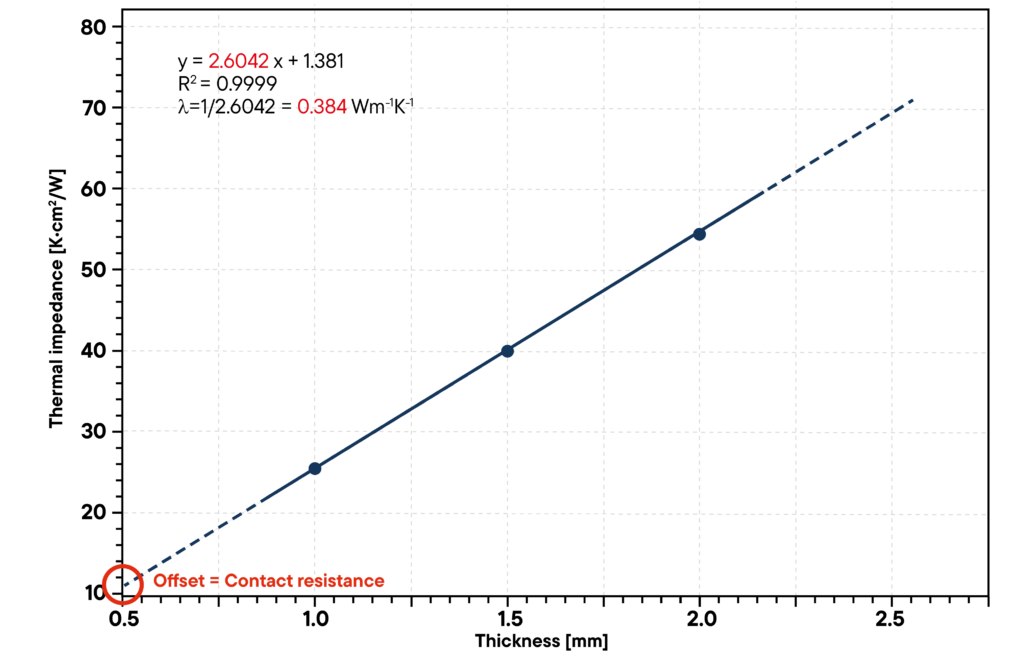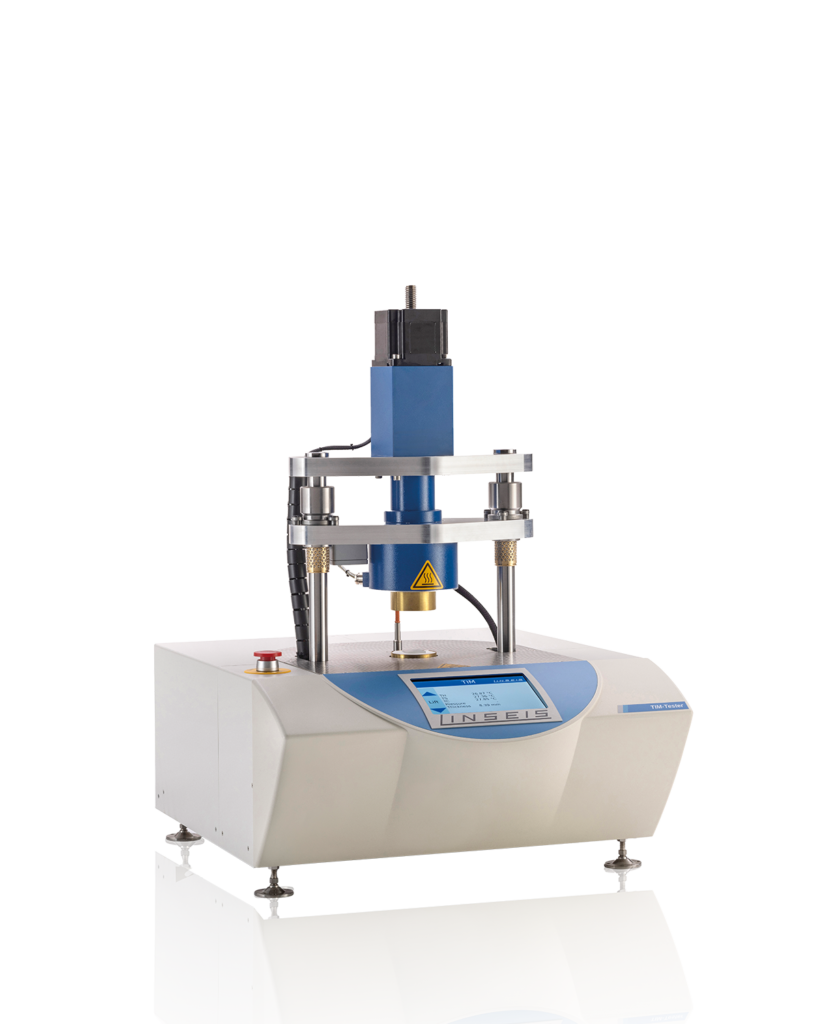Vespel™ is a high-performance polymer which is suited for extreme thermal, electrical and mechanical stress. Dimensional and thermal stability, low thermal and electrical conductivity, excellent wear and bearing properties, and chemical and radiation resistance are some of its remarkable properties.
Advantageous is also that many components can be made lighter and more resistant with Vespel than with conventional metals, ceramics and polymers. Vespel has various applications and is mostly used in aerospace, semiconductor and automotive technology.

The plot shows a measurement of the thermal impedance of a 25mm x 25mm Vespel sample at 50°C (TH=70°C, TC=30°C) and a contact pressure of 1 MPa, using the TIM-Tester (TIM L58). Three different samples with a thickness between 1.1 mm and 3.08 mm have been measured in order to determine the thermal conductivity and thermal contact resistance (using linear regression, as can be seen in the diagram). The measured thermal conductivity, which is the reciprocal of the slope, is 0.35 W/mK. The thermal contact resistance is the offset on the Y-Axis.

